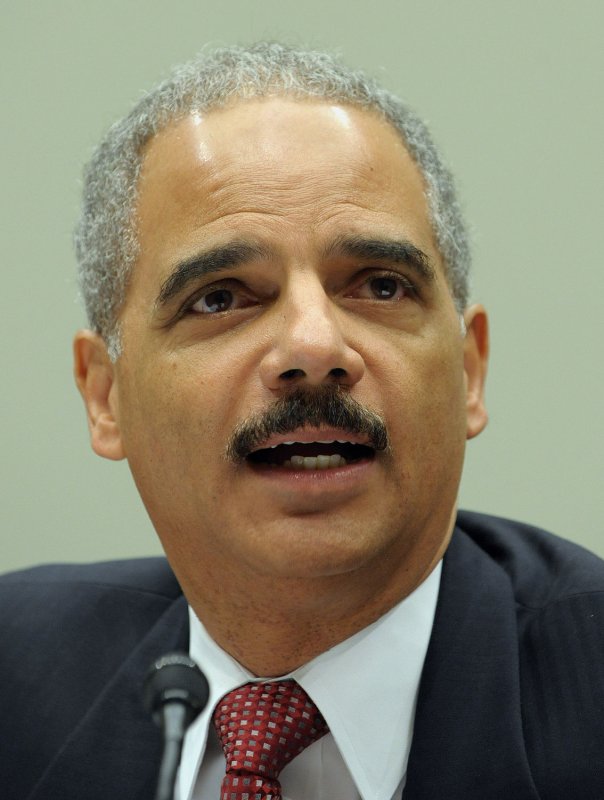U.S. Attorney General Eric Holder (UPI Photo/Roger L. Wollenberg) |
License Photo
WASHINGTON, June 22 (UPI) -- A key section of the Voting Rights Act survived a muscular challenge in the U.S. Supreme Court Monday, but reaction to the high court ruling was varied.
The justices voted 8-1 not to rule on the constitutionality of the act's section 5, which requires most states in the Old South and other parts of the United States with a history of discrimination to seek approval from the Justice Department or the federal court in Washington before making changes in the voting process.
The ruling in the Texas case was less than a resounding vote of support for section 5.
But U.S. Attorney General Eric Holder hailed the ruling as "a victory for voting rights in America," and said the Justice Department "will continue to vigorously enforce the Voting Rights Act, which was renewed with overwhelmingly bipartisan support in Congress in 2006."
Sharon L. Browne, a principal attorney in Pacific Legal Foundation's Individual Rights Practice group -- a right-leaning organization that filed a friend of the court brief in the case -- said, "It is disappointing that the Supreme Court decided to sidestep the constitutionality of Section 5, which gives the federal government too much power to micromanage local elections."
Abigail Thernstrom, vice chairwoman of the U.S. Commission on Civil Rights, and an adjunct scholar at the American Enterprise Institute, said: "For 40 years, the Supreme Court has been avoiding the key constitutional conundrums that lie at the core of the Voting Rights Act, and it has done so again today. ... In so doing, the court has simply postponed the day when it will be forced to confront the tough constitutional issues that the perpetuation of a radical provision in the act poses."
Matt Angle, director of the left-leaning Lone Star Project, warned that after the unsuccessful challenge, "Texas redistricting plans will be reviewed by the Justice Department, and partisan Republicans will no longer be able to count on partisan operatives within DOJ to subvert the law. This puts harshly partisan Republicans on notice that they must respect and abide by the Voting Rights Act or face objection from the Justice Department."
In an analysis on SCOTUSBLOG.com, Lyle Denniston, former dean of the Supreme Court press corps, said the battle over section 5 may be far from over.
"In the next few years, either a local government that tries but fails to get out from under section 5's controls, or a state government covered by the law but convinced it should not be any more, would have quite a good chance of renewing the constitutional controversy that the court did not decide," he said. "The main (Supreme Court) opinion, in fact, provides what could easily be read as a road map for such a future constitutional complaint. Perhaps one of the main ways to read the court's ruling, then, is that it it a warning to Congress that it needs to reconsider section 5, and shore it up, if it can, with a new formula for coverage, and provide some assurance that it will no longer single out some states to bear section 5's obligations in ways that the court suggested were now unequal."















